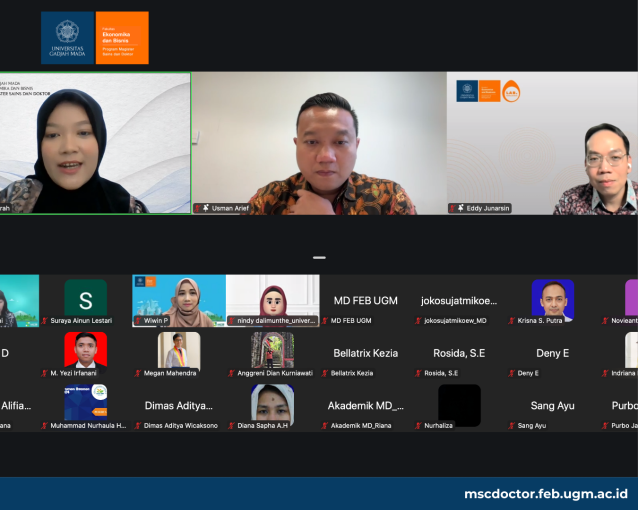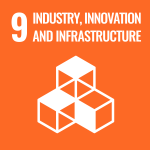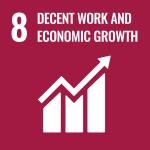
The Master of Science and Doctoral Program FEB UGM held a public lecture on “Decentralized Finance (DeFi): The Future of Banking-Free Finance and Investment Opportunities in the Digital Era” on Friday, February 28, 2025. The event featured Mr. Eddy Junarsin, Ph.D., CFP, as the keynote speaker and Mr. Usman Arief, S.E., M.S.M., as the moderator. This public lecture was conducted online via Zoom Meeting from 09:00 to 11:00 and was open to the public.
In his presentation, Eddy Junarsin discussed the concept of Decentralized Finance (DeFi), a blockchain-based financial system that enables transactions without the involvement of banks or traditional financial institutions. While DeFi offers new investment opportunities, it also faces challenges such as regulation and data security.
One of the key innovations in blockchain is smart contracts, which are self-executing digital agreements that automatically enforce terms when predefined conditions are met, similar to how a vending machine operates. Smart contracts are already being applied in various sectors, such as Ethereum-based agricultural insurance, where insurance claims are automatically processed based on verified weather data without manual intervention.
Furthermore, DeFi plays a significant role in digital investments through mechanisms such as staking—where assets are stored in a blockchain to earn returns of 1-5%—and liquidity protocols, which allow users to lend their assets at specified interest rates. Another emerging phenomenon within this ecosystem is memecoins, digital assets that often go viral but do not always hold strong fundamental value.
From a security perspective, blockchain offers transparency and data protection through decentralization, meaning no single entity has control over the system. Additionally, public transaction records, cryptographic hashing, and consensus mechanisms ensure data integrity and prevent manipulation.
Through this lecture, students were expected to gain a deeper understanding of blockchain technology developments and sharpen their critical thinking skills in navigating the rapidly evolving landscape of digital financial innovation.



